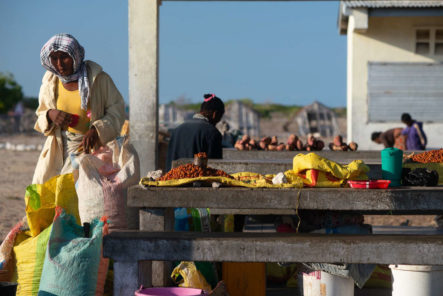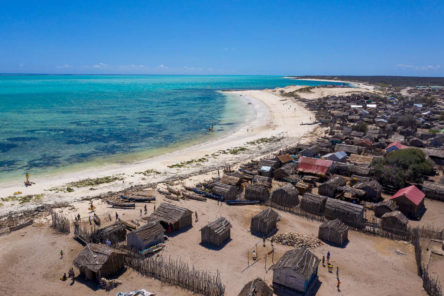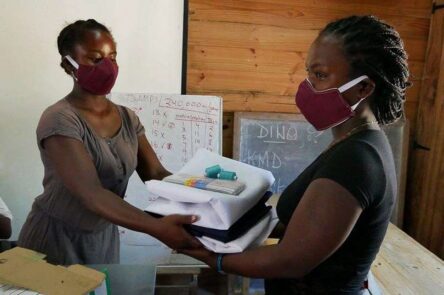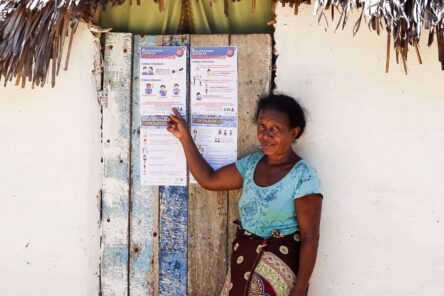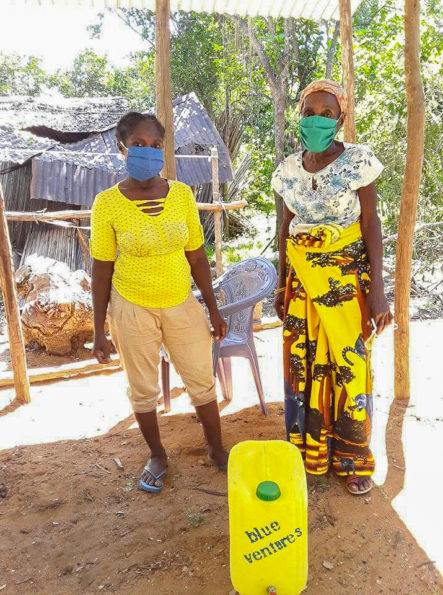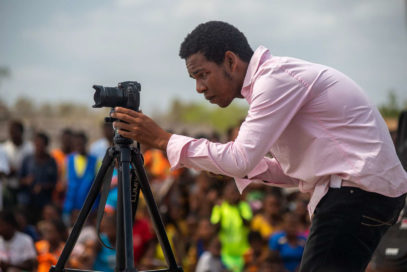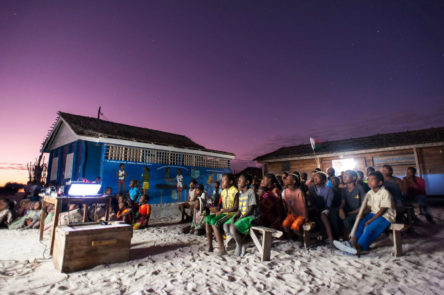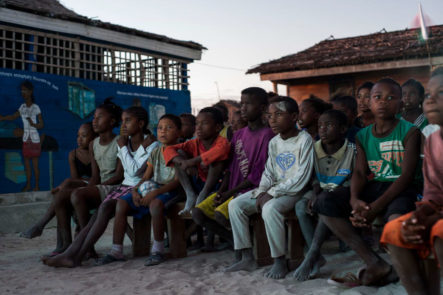Just a few months ago, COVID-19 was declared a global pandemic. Crossing borders and oceans, the crisis has made us realise just how interconnected our lives are for perhaps the first time in history. Yet, whilst the virus has drastically altered the way we all live our lives, for those who live in countries with unstable economies, limited healthcare provisions and isolated living conditions, the impacts of this crisis are wreaking havoc.
Despite their beauty, living and working along the remote tropical coastlines of Madagascar can be treacherous at times of crisis. Most people rely on the ocean for their livelihoods, but the current pandemic has impacted the international seafood markets, meaning that now, catches are mostly for local consumption which has led to a sudden drop in the price of octopus, crab and finfish, and increase in the cost of other vital food supplies such as rice. For coastal communities in Madagascar, livelihoods were already fairly unstable, but COVID-19 has exacerbated their already precarious socio-economic situation.
Since COVID-19 has come here, there has been trouble. I thought that this was the end of my life – so did many people here. Some other people thought coronavirus wasn’t real, that it’s made up. But now, the price of fish has gone down and people are struggling to make a living.” – Symphorien Nihala Maniry Soa, Outreach Media Technician, Blue Ventures Andavadoaka
To date, there have been no reported cases of COVID-19 amongst these remote communities, however monitoring of the virus is complex in Madagascar – tests are few and far between, many communities live in isolated locations and health infrastructure is fragile. It is difficult to predict how the pandemic will evolve and how remote communities will be impacted in the coming months and years, but one thing is certain: there is an urgent need to prepare vulnerable communities who are restricted in their access to accurate information, transport and sufficient healthcare, to build resilience against the crisis.
In order to do this, Blue Ventures local staff in Madagascar have adapted quickly to tackle both the spread of the virus within isolated communities, and the impacts that it is having on coastal livelihoods. In line with their community-based approach and their collaboration with existing local structures, the teams have been facilitating the training of community health workers on COVID-19, collaborating and supporting the health response of national and regional health authorities as technical relays, and supporting Komity Loharano (COVID-19 committees of around six people, who manage local coordination and monitoring of the virus) in each village.
Staff have also carried out community outreach missions, delivering hand washing units, providing soap and PPE, and raising awareness of the virus. In April, during an outreach mission in Maintirano, west Madagascar, the Blue Ventures team there found that some communities were still unaware of the pandemic, despite the first case being recorded in Madagascar in March. Further to this, as Symphorien said, others thought that the virus didn’t really exist; getting public health messaging to isolated communities in a way that works for them has been a crucial part of Blue Ventures’ COVID-19 response in Madagascar.
So far, raising awareness has taken many forms, with teams using their understanding of local needs to develop communication tools that they know will be most effective. For areas where there is a high illiteracy rate, the Madagascar PHE Network have created some visually engaging posters to be distributed and displayed by Blue Ventures’ teams. Other outreach missions have involved using modern ‘Tam Tam’ – driving through the district in a truck with two loudspeakers attached, sharing live and recorded messages on how to stay safe.
One of the most effective ways the teams have found to spread the word about the virus however, has been through the power of music and film, choosing popular music styles, writing lyrics in local dialects and featuring community members to create authentic outreach tools in line with the needs and living context of vulnerable coastal communities.
In Andavadoaka, southwest Madagascar, a group of students who have named themselves Jasfage, led by Fredo (a student who is supported by Blue Ventures on the scholarship scheme) worked with Symphorien to write and record Corona, a song about coronavirus and also produced an accompanying music video – all within the space of a week.
The video is one of many community outreach media tools that Symphorien – Blue Ventures’ Outreach Media Technician – has contributed to create during his time working with Blue Ventures, and one of three COVID-19 related media projects since the pandemic was announced. “Here, in southwest Madagascar we use music videos as tools to make the community understand about conservation or about health,” he said, “I know what the community here like and how best to communicate new ideas to them.”
Symphorien’s understanding of the local context makes him an expert in community outreach, and his technical skills which he has developed over 10 years as a Blue Ventures supported student, intern and now valued staff member, enable him to work with other community members to produce outreach tools that are sensitive to the needs of the community.
By working with the community to produce these outreach tools, we give them the opportunity to share their voice and talents, and inspire others to do the same. When we work on ideas that have come from the communities, the message is more powerful and more people want to hear it.”
The catchy COVID-19 song, which tunefully explains the guidelines around social distancing and handwashing, has already been screened to communities in Andavadoaka at one of the village’s film nights, where local people are able to watch all of the films and videos that Symphorien and his collaborators from the community have created.
Elsewhere in Madagascar, like Symphorien’s team, other teams have been working on creative and engaging ways to communicate COVID-19 messaging to isolated communities.
In Maintirano, Aimé and the team have supported community health workers in producing a film, Sarotsy Gnay (meaning ‘life matters’) showcasing the work that community health workers have been doing during the pandemic, and have also produced a song, Fokonolo miara miady ho lavitsy coronavirus (‘The community fights together to keep the coronavirus away’). Both media projects were created with support from the Vezo Miray Nosy Barren locally managed marine area, Blue Ventures’ partner organisations PSI, USAID, ACCESS and Mehefa Miaraka, as well as regional television crews in the area.
In a similar light, in Ambanja, a team effort from Michelardin, Zo, Emilien, Brinah, David, François and Bienvenue, led to the production of an engaging music video to support Blue Ventures’ community health outreach during this time of crisis. Michelardin, who wrote the song with Zo, said:
Communities love a popular musical rhythm, which is why we created this song to transfer vital public health messaging. It is really important to know what communities want. If you really know what they want, it is not difficult to communicate important messages to them.”
The Ambanja team have also developed a radio show, designed to help communities in the villages where we work understand the virus and how to protect against it. The radio show, which features community members and representatives from the local health authorities, also explains our health-environment approach and the importance of recognising the inextricable link between human health and nature. So far, it has been broadcasted on five local radio stations.
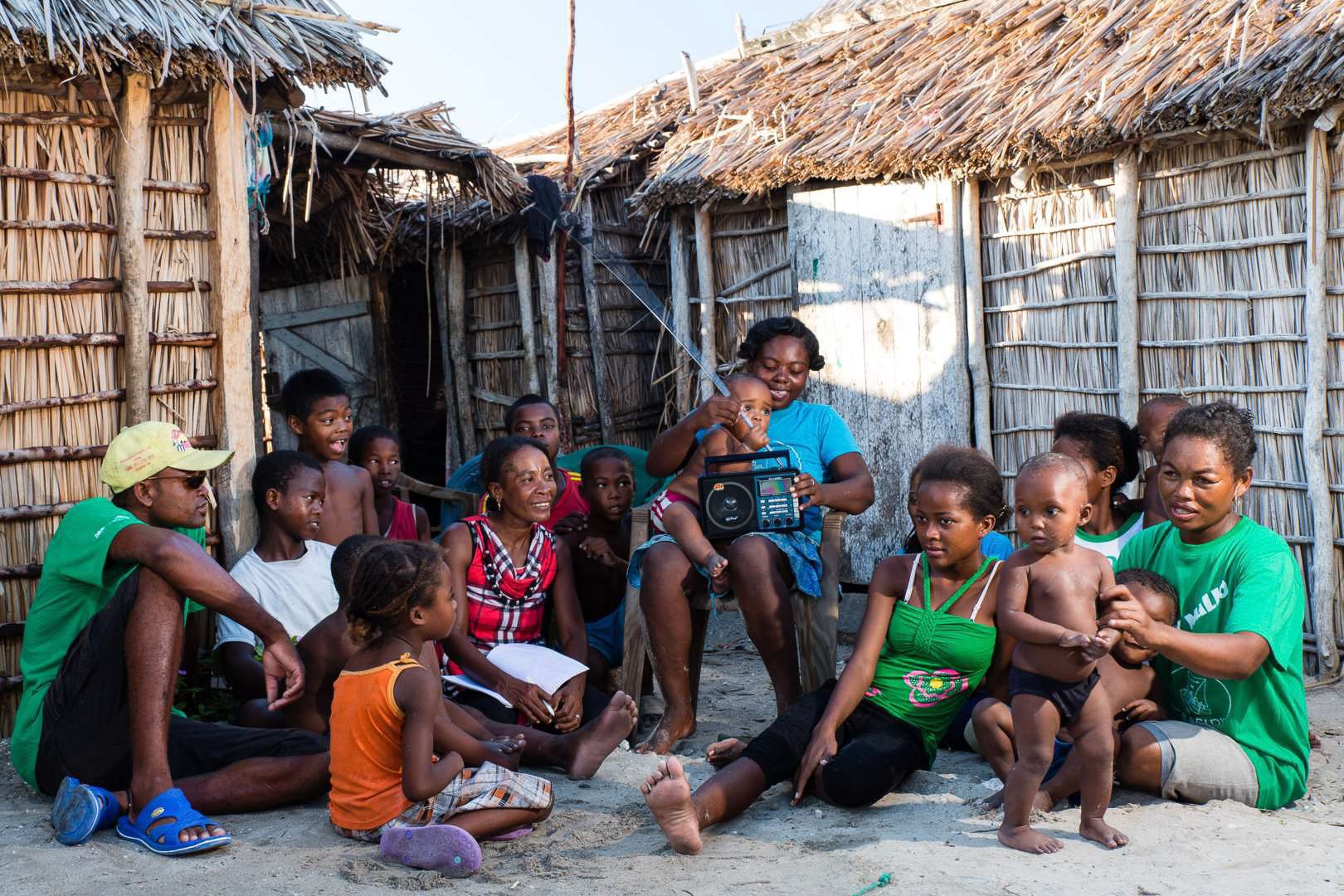
Radio is often the only source of information for communities in coastal Madagascar | Photo: Louise Jasper
For a country that has suffered the impacts of devastating cyclones and a number of deadly disease outbreaks in the last 10 years, the COVID-19 pandemic is yet another shock to the resilience of the Malagasy people. However, yet again, the Blue Ventures field staff and community partners have adapted, responded, and continued to put communities first, despite the very real impact of the pandemic in their own lives.
Symphorien, Aimé and Michelardin are just a handful of examples of community-based conservation activists who are working to support coastal communities in inventive and creative ways. Their collaboration with members from Blue Ventures’ partner communities is not only tackling the impacts of the current crisis, but as Symphorien says, “is building lasting relationships and creating lifelong friends for conservation.”
By supporting our COVID-19 response, you could enable further radio broadcasts, music videos and songs to be produced, to raise awareness of the pandemic amongst remote coastal communities in Madagascar and beyond.
To find out more about Symphorien’s work, watch this short film:


